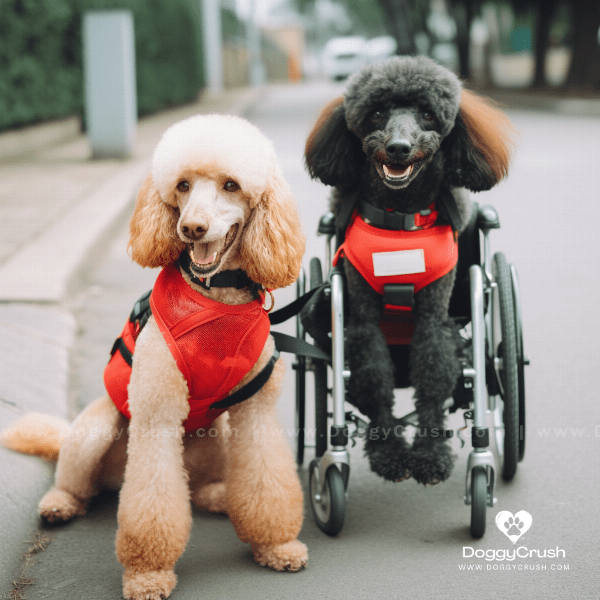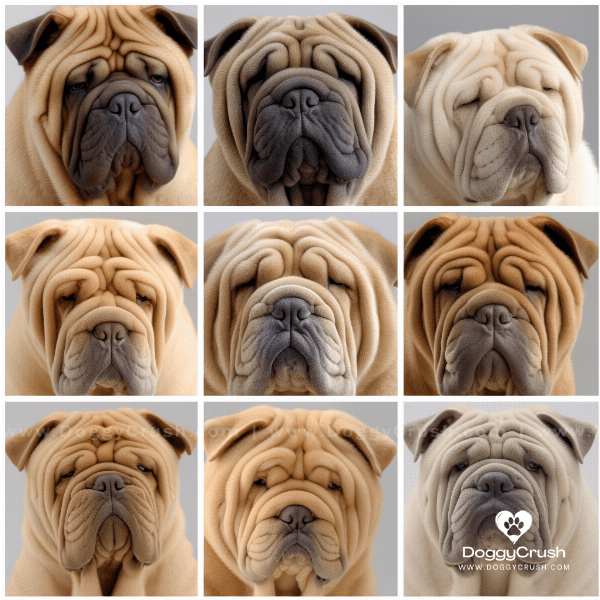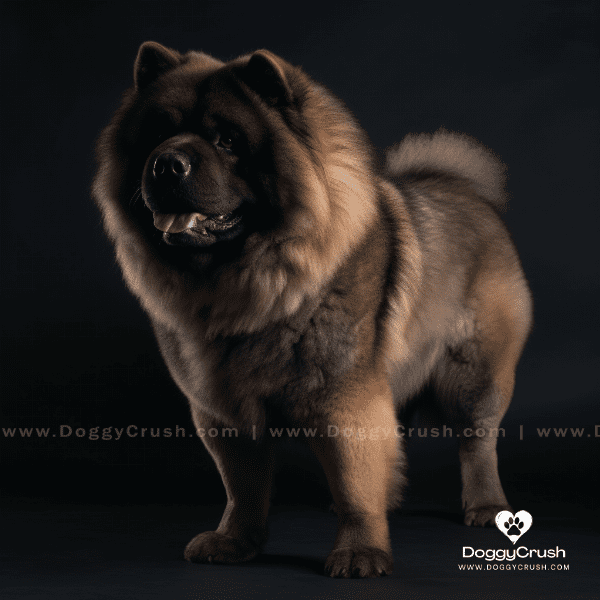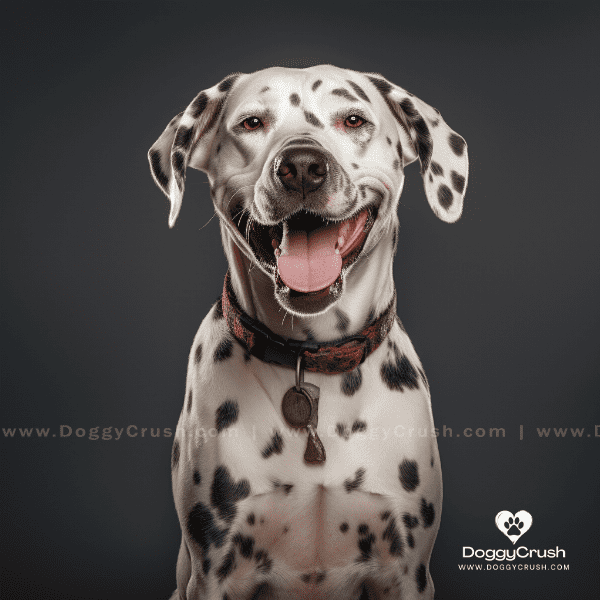Table of Contents
- History and Origin of Poodle Dogs
- Different Types of Poodle Breeds
- Physical Characteristics and Appearance
- Temperament and Personality Traits
- Grooming and Maintenance of Poodle Dogs
- Nutrition and Health Needs of Poodle Dogs
- Exercise Requirements for Poodle Dogs
- Training and Socialization for Poodle Dogs
- Common Misconceptions about Poodle Dogs
- Poodle Dogs as Service Animals and Companions
History and Origin of Poodle Dogs
Poodles are a breed of dog that has been around for hundreds of years, and their origins are somewhat mysterious. While there is no one definitive theory on where they came from, there are a few possibilities that experts have suggested.
An Ancient Breed
One theory is that Poodles have been around since ancient times, and that they originated in central Asia. These early Poodles were thought to be used for hunting, particularly of waterfowl, and were prized for their intelligence and trainability.
A French Connection
Another theory suggests that Poodles were developed in France, where they were used as water retrievers and hunting dogs. The French word “pudel” means “to splash in water,” which may have given rise to the breed’s name. In France, Poodles became a symbol of luxury and refinement, and they were often used as show dogs and companions to the aristocracy.
German Influences
Finally, some experts suggest that Poodles were developed in Germany, where they were known as the Pudelhund. The breed was popular in Germany in the 16th and 17th centuries, where they were used as retrievers and as circus performers.
Regardless of where they originated, Poodles quickly became popular in Europe and later in the United States. Today, they are one of the most popular breeds of dog, and they continue to be used for hunting, as well as for companionship and show.
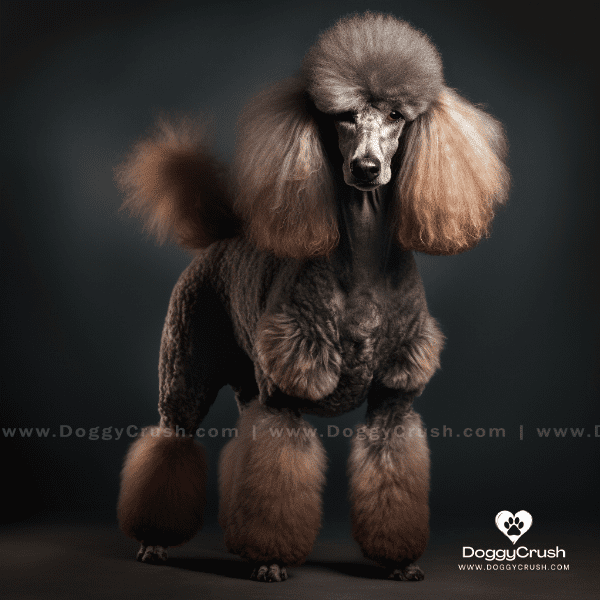
Different Types of Poodle Breeds
Poodle breeds come in a variety of sizes, and each size has its own unique characteristics and traits. Here are some of the different types of Poodle breeds:
Toy Poodle
The Toy Poodle is the smallest of the Poodle breeds, standing less than 10 inches tall at the shoulder. They were originally bred as companions and were favored by the aristocracy in France. Today, they are popular as companions and as show dogs. They are known for their intelligence, trainability, and affectionate personality.
Other Varieties
In addition to the Standard, Miniature, and Toy Poodles, there are also other varieties of Poodles, such as the Moyen Poodle (also known as the Klein Poodle), which is a medium-sized Poodle that stands between the Miniature and Standard sizes. There are also mixed breeds that incorporate Poodles, such as the Labradoodle (a cross between a Poodle and a Labrador Retriever) and the Cockapoo (a cross between a Poodle and a Cocker Spaniel).
Each type of Poodle breed has its own unique characteristics and personality traits, but they all share the same intelligence and trainability that make them such beloved companions.
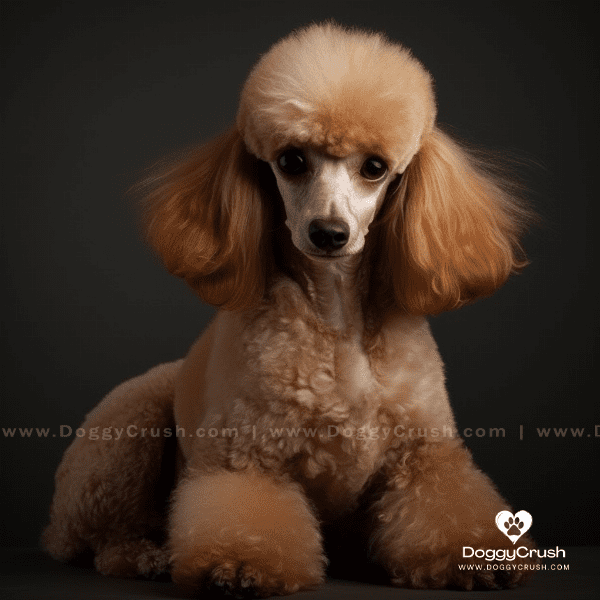
Physical Characteristics and Appearance
Poodles are known for their distinctive appearance, with their curly, hypoallergenic coats and elegant posture. Here are some of the physical characteristics of Poodles:
Coat
The Poodle’s coat is one of its most distinctive features. It is curly and dense, and it can come in a variety of colors, including white, black, brown, and apricot. Poodle coats are also hypoallergenic, which makes them a good choice for people with allergies.
Body
Poodles are a well-proportioned breed, with a graceful, athletic build. They have long, straight legs and a long, tapered muzzle. Their ears are long and hang close to their heads, and their eyes are dark and expressive.
Size
As previously mentioned, Poodles come in a variety of sizes, with the Standard Poodle being the largest and the Toy Poodle being the smallest. The Standard Poodle can weigh up to 70 pounds, while the Toy Poodle weighs in at around 6 pounds.
Gait
Poodles are known for their distinctive gait, with their heads held high and their tails held straight out behind them. Their movements are elegant and graceful, with a light, springy step.
Overall Appearance
The overall appearance of a Poodle is one of elegance and refinement. They are a well-proportioned breed, with a distinctive coat that sets them apart from other breeds. Their intelligent, expressive eyes and graceful gait only add to their appeal.
In conclusion, the physical characteristics and appearance of Poodles are what make them such a beloved breed. From their hypoallergenic coats to their graceful posture, Poodles are truly one-of-a-kind.
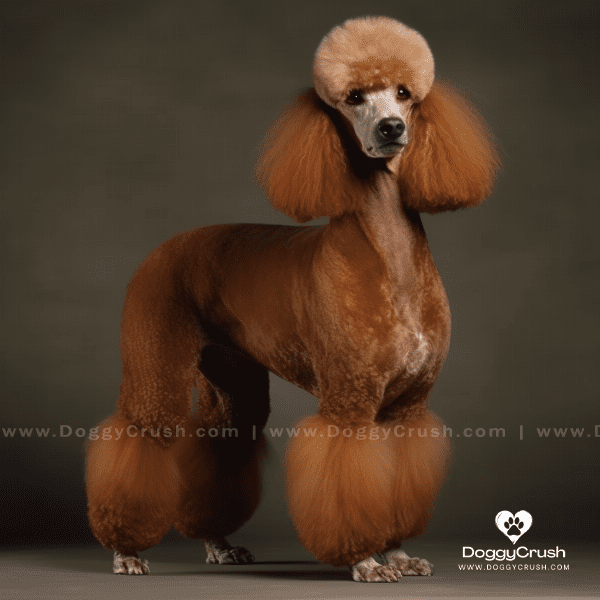
Temperament and Personality Traits
Poodles are known for their intelligence, trainability, and affectionate personalities. Here are some of the temperament and personality traits that are commonly associated with Poodles:
Intelligent
Poodles are one of the most intelligent breeds of dog, and they are known for their problem-solving skills and ability to learn quickly. They are also highly trainable, which makes them popular as service dogs and in other working roles.
Affectionate
Poodles are known for their affectionate nature and their love of people. They are loyal and devoted to their owners and enjoy spending time with them.
Alert
Poodles are a watchful breed and make excellent watchdogs. They are alert and will bark to alert their owners of anything out of the ordinary.
Sociable
Poodles are a sociable breed and get along well with other dogs and animals. They also enjoy being around people and make great family pets.
Independent
While Poodles are affectionate and sociable, they also have an independent streak. They are not clingy and are capable of entertaining themselves.
In summary, Poodles have a unique blend of intelligence, affection, and independence that make them an excellent choice for families and working roles. They are active and alert, yet sociable and loving, and their trainability and problem-solving skills make them an ideal choice for a variety of roles.
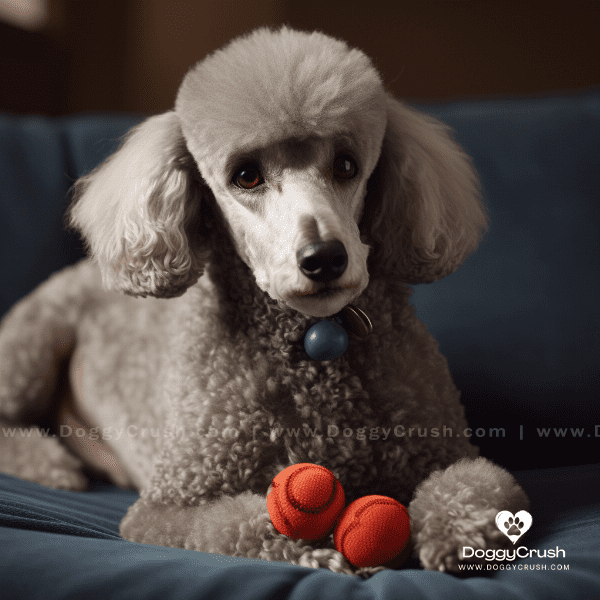
Grooming and Maintenance of Poodle Dogs
Poodle breeds have a unique coat that requires regular grooming to keep it healthy and free of tangles. Here are some tips for grooming and maintaining your Poodle’s coat:
Brushing
Poodles should be brushed daily to prevent their hair from matting and tangling. A slicker brush or a metal comb can be used to remove tangles and keep the coat looking smooth.
Bathing
Poodles should be bathed every 4-6 weeks to keep their coat clean and healthy. It is important to use a mild, dog-specific shampoo to avoid drying out their skin.
Clipping
Poodles require regular clipping to maintain their distinctive look. This can be done at home with clippers or scissors, but many owners prefer to take their Poodles to a professional groomer.
Ear Cleaning
Poodles are prone to ear infections, so it is important to clean their ears regularly. A solution of equal parts vinegar and water can be used to clean the ears, and a cotton ball or soft cloth can be used to dry them.
Dental Care
Poodles are also prone to dental problems, so it is important to keep their teeth clean. Regular brushing and dental chews can help prevent tooth decay and gum disease.
Nail Trimming
Poodles’ nails should be trimmed regularly to prevent them from becoming too long and causing discomfort. A guillotine-style nail clipper can be used to trim the nails, or a professional groomer can do it for you.
In conclusion, Poodles require regular grooming and maintenance to keep their distinctive coat healthy and free of tangles. With daily brushing, regular baths, and proper nail trimming and dental care, your Poodle can be a healthy and happy companion for years to come.
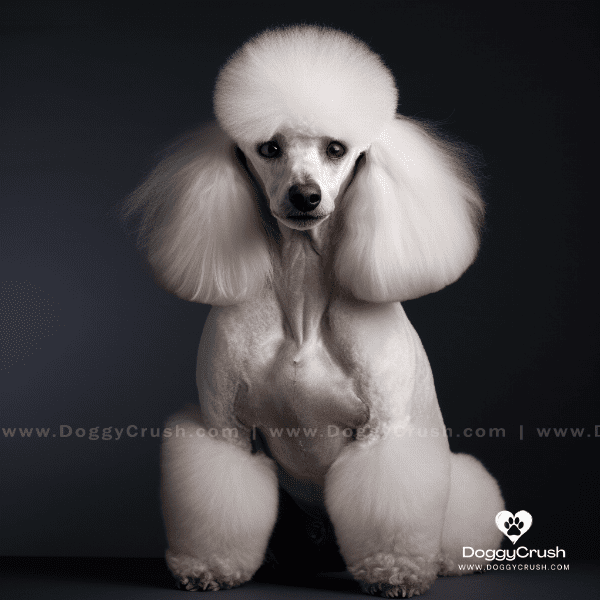
Nutrition and Health Needs of Poodle Dogs
Poodle breeds have specific nutrition and health needs that should be taken into consideration to keep them healthy and happy. Here are some tips for meeting the nutrition and health needs of your Poodle:
Nutrition
Poodles require a high-quality, balanced diet to maintain their health. It is important to choose a dog food that is specifically formulated for their size and age, and to avoid feeding them table scraps or human food. Poodles are prone to weight gain, so it is important to monitor their calorie intake and to avoid overfeeding.
Water
Poodles require access to fresh, clean water at all times. It is important to change their water frequently and to wash their water bowl regularly to prevent the buildup of bacteria.
Exercise
Poodles require daily exercise to maintain their health and prevent weight gain. They enjoy playing games and going for walks, and they thrive when they have a job to do.
Vaccinations and Preventative Care
Poodles should receive regular vaccinations and preventative care to protect them from common illnesses and diseases. They are also prone to certain health issues, such as hip dysplasia and eye problems, so it is important to have them checked regularly by a veterinarian.
Common Health Issues
Poodles are prone to certain health issues, such as allergies, ear infections, and dental problems. It is important to monitor your Poodle for any signs of discomfort or illness and to seek veterinary care if necessary.
In summary, Poodles have specific nutrition and health needs that should be taken into consideration to keep them healthy and happy. With a balanced diet, regular exercise, and proper preventative care, your Poodle can be a healthy and active companion for many years to come.
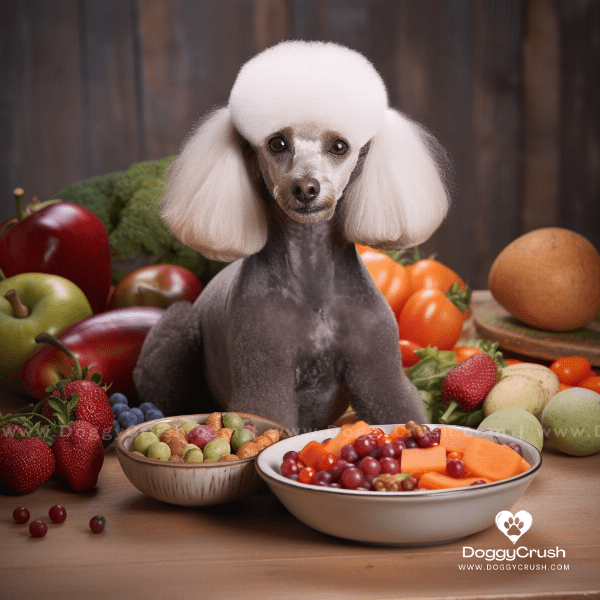
Exercise Requirements for Poodle Dogs
Poodles are an active breed that require daily exercise to maintain their physical and mental health. Here are some tips for meeting the exercise requirements of your Poodle:
Daily Walks
Poodles should be taken for a daily walk to maintain their physical health and prevent weight gain. A brisk 30-minute walk is usually sufficient for most Poodles, but they may require more exercise if they are particularly active.
Playtime
Poodles enjoy playing games and engaging in other forms of play. Fetch, tug-of-war, and other interactive games are great ways to provide exercise and mental stimulation for your Poodle.
Agility Training
Poodles are a highly trainable breed and often excel at agility training. Agility training involves obstacle courses and other physical challenges that can provide a great workout for your Poodle.
Swimming
Many Poodles love to swim, and it is a great low-impact exercise that can be particularly beneficial for older or overweight Poodles. However, it is important to supervise your Poodle when they are swimming and to ensure that they are comfortable in the water.
Mental Stimulation
In addition to physical exercise, Poodles also require mental stimulation to keep them happy and healthy. Training exercises, puzzle toys, and other forms of mental stimulation can provide a great workout for your Poodle’s mind.
In conclusion, Poodles require daily exercise to maintain their physical and mental health. With daily walks, playtime, and other forms of physical and mental stimulation, your Poodle can be a healthy and active companion for years to come.
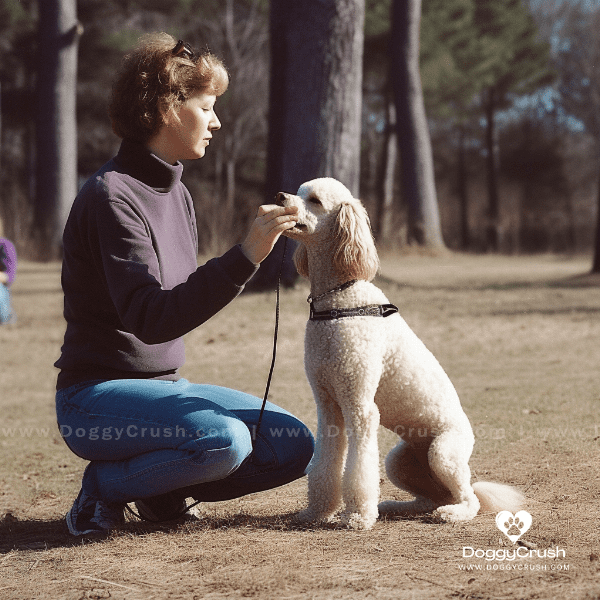
Training and Socialization for Poodle Dogs
Poodles are a highly intelligent breed that respond well to training and socialization. Here are some tips for training and socializing your Poodle:
Obedience Training
Poodles are a highly trainable breed that respond well to obedience training. Basic commands such as sit, stay, and come are important for keeping your Poodle safe and well-behaved. Positive reinforcement, such as treats and praise, is the most effective training method for Poodles.
Socialization
Poodles are a sociable breed that enjoy being around people and other animals. It is important to socialize your Poodle from a young age to prevent shyness or aggression. Exposing your Poodle to different people, animals, and environments can help them become a confident and well-adjusted adult.
Housetraining
Poodles are an intelligent breed that can be easily housetrained. Consistency and positive reinforcement are key when housetraining your Poodle. Crate training can also be an effective tool for housetraining and providing your Poodle with a safe and comfortable space.
Advanced Training
Poodles are a versatile breed that excel in advanced training such as agility, obedience, and therapy work. Advanced training can provide mental stimulation and physical exercise for your Poodle, as well as opportunities for bonding with their owner.
Behavioral Issues
Poodles can develop behavioral issues such as separation anxiety, excessive barking, and destructive chewing. It is important to address these issues with positive reinforcement training and, if necessary, seek the help of a professional dog trainer.
In summary, training and socialization are important for keeping your Poodle happy and well-behaved. With positive reinforcement training, early socialization, and advanced training opportunities, your Poodle can become a confident and well-behaved companion for many years to come.

Common Misconceptions about Poodle Dogs
Poodles are a popular breed, but they are also subject to some common misconceptions. Here are some of the most common misconceptions about Poodles and why they are not true:
Poodles are Frou-Frou Dogs
One of the most common misconceptions about Poodles is that they are frou-frou dogs that are only suitable for show. However, Poodles are a versatile breed that excel in a variety of roles, including hunting, herding, and service work.
Poodles are Allergic to Water
Another common misconception about Poodles is that they are allergic to water. While Poodles do have a unique coat that requires regular grooming, they are not allergic to water. In fact, many Poodles love to swim and can be excellent water retrievers.
Poodles are High-Maintenance Dogs
Poodles do require regular grooming to keep their coat healthy, but they are not necessarily high-maintenance dogs. With daily brushing and regular bathing, their coat can be easily maintained. Additionally, their intelligence and trainability make them easy to train and handle.
Poodles are Not Good with Children
Poodles are a sociable breed that can be great with children. However, as with any breed, it is important to supervise interactions between children and dogs to prevent any potential accidents or injuries.
Poodles are Not Good Guard Dogs
While Poodles are not typically known for their guarding abilities, they can make effective watchdogs. Their alertness and tendency to bark at strangers can make them an effective early warning system.
In conclusion, Poodles are a versatile breed that are subject to some common misconceptions. By understanding the true nature of the breed, you can make an informed decision about whether a Poodle is the right dog for you.
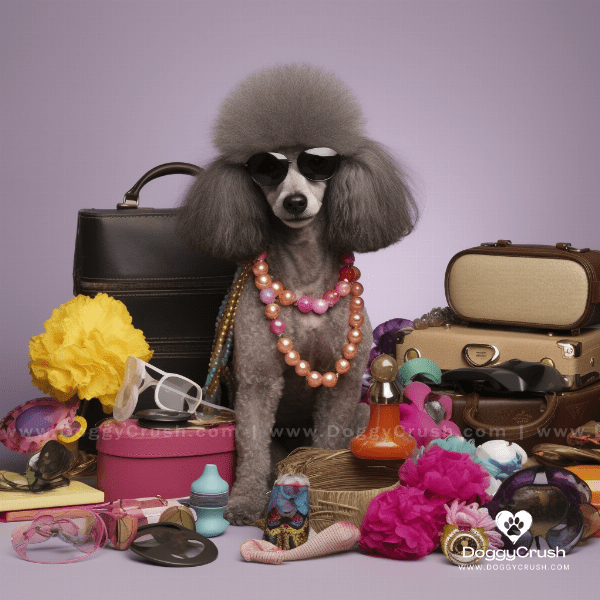
Poodle Dogs as Service Animals and Companions
Poodle breeds are known for their intelligence and trainability, which make them excellent candidates for service work and as companions for people with disabilities or special needs. Here are some of the roles that Poodle dogs can excel in:
Service Dogs
Poodles can be trained as service dogs to assist people with disabilities, such as hearing or visual impairments. They can also be trained as mobility assistance dogs to help people with physical disabilities.
Therapy Dogs
Poodles can make great therapy dogs, providing emotional support and comfort to people in hospitals, nursing homes, and other settings. They are affectionate and sociable, and their hypoallergenic coat makes them ideal for people with allergies.
Emotional Support Dogs
Poodles can also be trained as emotional support dogs to provide comfort and support to people with mental health conditions such as anxiety or depression. They can help their owners cope with stress and anxiety and provide a calming presence.
Companions for Seniors
Poodles can make excellent companions for seniors, providing social interaction and emotional support. They are also an active breed that can help seniors stay active and engaged.
Companions for Children
Poodles can make great companions for children, providing them with a loyal and affectionate friend. They are gentle and playful, and can help children develop a sense of responsibility and empathy.
In summary, Poodle breeds are highly versatile and can excel in a variety of roles as service animals and companions. Their intelligence, trainability, and affectionate nature make them an ideal choice for people with disabilities or special needs, as well as for seniors and children.
